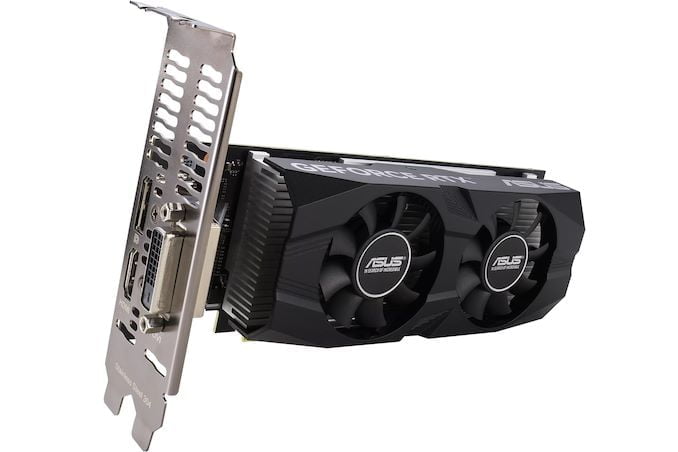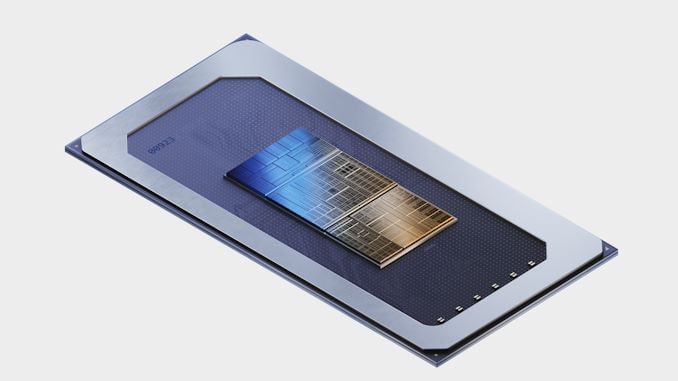Asus this week has become the latest PC video card manufacturer to announce a sub-75W video card based on NVIDIA’s recently-released low-power GeForce RTX 3050 6GB design. And going one step further for small form factor PC owners, Asus has used NVIDIA’s low-power GPU configuration to produce a half-height video card that can fit into low-profile systems.
As Asus puts it, the GeForce RTX 3050 LP BRK 6GB GDDR6 is a ‘big productivity in a small package’ and for a low-profile dual-slot graphics board, it indeed is. The unit has three display outputs, including a DVI-D, HDMI 2.1, and DisplayPort 1.4a with HDCP 2.3 support, which makes the graphics card s viable option both for a a dual-display desktop and a home theater PC (Nvidia’s GA107 graphics processor supports all popular codecs except AV1). Furthermore, a DVI-D output enables the card to drive outdated displays, which even over half a decade after DVI-D was retired, still hang around as spare parts. Meanwhile, because the card only consumes around 70W, it does not require any auxiliary PCIe power connectors, which are at times not available in cheap systems from big PC makers.
Underlying this card is the aforementioned GeForce RTX 3050 6 GB, which uses the GA107 GPU with 2304 CUDA cores, and it comes with 6GB of GDDR6 memory connected to a narrower 96-bit memory bus (down from 128-bits for the full 8GB version. With a lower boost clock of 1470 MHz (1500 MHz in OC mode), the RTX 3050 6GB has reduced computing performance, delivering 6.77 FP32 TFLOPS versus 9.1 FP32 TFLOPS of the full-fledged RTX 3050.
As a result, the low-profile GeForce RTX 3050 6 GB is very much an entry-level card, though the low power requirements for such a card are also what make it special. This should be plenty for low-end gaming – beating out integrated GPUs – though suffice it to say, it’s not going to compete with high-end, power-hungry cards either.
With its diminutive size, the Asus GeForce RTX 3050 LP BRK 6 GB GDDR6 looks to be a nice candidate for upgrading cheap systems from OEMs as well as fixing outdated PCs. What remains to be seen is how price competitive it is going to be. The graphics board already has one low-profile rival from MSI — which costs $185 — so Asus is not the only vendor competing here.



